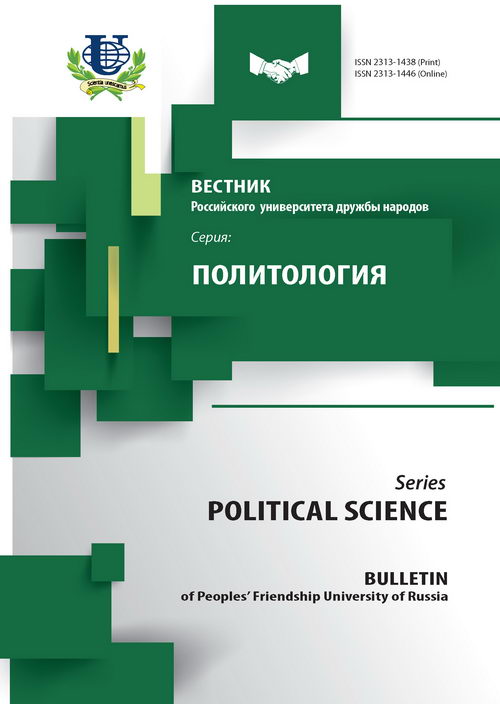Перепрочтение А. Смита в период кризиса
- Авторы: Дуткевич Я.1
-
Учреждения:
- Новая школа социальных исследований
- Выпуск: № 1 (2012)
- Страницы: 92-97
- Раздел: СТАТЬИ
- URL: https://journals.rudn.ru/political-science/article/view/8885
- ID: 8885
Цитировать
Полный текст
Аннотация
В период кризиса как мировой экономики, так и самих идеологических оснований экономической системы либерального капитализма отчетливо наблюдается тенденция к догматизации работ классических мыслителей через выборочное использование отдельных фрагментов их работ, для оправдания или критики статуса-кво. Такое выборочное прочтение особенно характерно для трудов А. Смита - т.н. «отца современной экономики». Представленная статья имеет целью отразить мысли А. Смита по поводу двух центральных аспектов современного кризиса: причин ограниченной ответственности корпораций (чьи мотивы извлечения прибыли в ряде сфер все в большей степени подвергаются критике) и роли индивида в рыночной экономике. Данные вопросы не настолько различны как может показаться, ведь они оба относятся к концепции А. Смита о естественной роли индивида (homo oeconomicus), так как А. Смит рассматривал рынок не только как экономический, но и как социальный институт.
Ключевые слова
Список литературы
- Anspach R. The Implications of the Theory of Moral Sentiments for Adam Smith's Economic Thought // History of Political Economy. - 1972. - № 4.
- Coase R.H. Adam Smith's View of Man // The Journal of Law and Economics. - (3), 1976. - Vol. 19 University of Chicago Selected Papers version. No. 50, 1976.
- Condon S. Herman Cain to «Occupy Wall Street» protesters: Don't blame Wall St, blame yourself // CBS News. - Oct. 5, 2011. URL: http://www.cbsnews.com/8301-503544_162-20116087-503544.html
- Evensky J. Adam Smith's Moral Philosophy. - Cambridge University Press, 2005.
- Fitzgibbons A. Adam Smith's System of Liberty, Wealth and Virtue. - Clarendon Press, 1995.
- Friedman M. Economic Freedom, Human Freedom, Political Freedom. Speech to the Smith Centre, California State University, East Bay. - November 1, 1991.
- Friedman M. The Social Responsibility of Business is to Increase its Profits // The New York Times Magazine. - 1970. - September 13.
- Friedman M. Freedom and Philanthropy: An Interview with Milton Friedman // Business and Society Review. - Fall 1989.
- Hodac M. Adam Smith's Folly // Forbes.com. - 2007. - Oct. 25. URL: http://www.forbes.com/ 2007/10/24/adam-smith-corporations-markets-marketsp07-cx_mh_1025hodak.html
- Lindblom Ch. The Market as Prison // The Journal of Politics. - 1982. - 44 (2), May.
- Jensen M. Value Maximization and the Corporate Objective Function // Harvard Business School Working Paper. - № 00-058. - January 2000.
- Macfie A.L. Adam Smith's Moral Sentiments As Foundation for his Wealth of Nations // Oxford Economic Papers. - 11:3. - Oct. 1959.
- Macfie A.L. The Individual in Society: Papers on Adam Smith // George Allen & Unwin, 1967.
- Smith A. The Theory of Moral Sentiments. - Liberty Fund, 1982.
- Smith A. The Wealth of Nations. - Bantam, 2003.
- Viner J. Adam Smith and Laissez Faire // The Journal of Political Economy. - 1927. - Vol. 35. - № 2.
Дополнительные файлы















